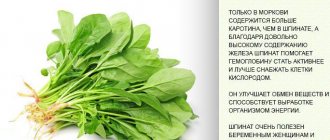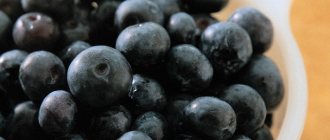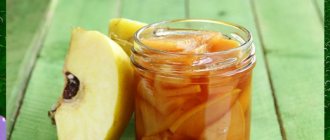Vitamins ensure the proper functioning of all organs and systems of the human body and strong immunity. A normal balance of vitamins and essential nutrients - proteins, fats and carbohydrates - is the key to high mental and physical activity.
A lack of vitamins negatively affects both the health and quality of life of a person in general.
The main sources of vitamins of natural origin are fruits and vegetables. Vitamin D is remarkable in that it is synthesized under the influence of sunlight in the skin and then enters the body. For its sufficient production, it is very important to regularly be in the sun.
That is why vitamin deficiency is especially characteristic of the winter period
, when the supply of vitamins accumulated over the few warm months is depleted, and daylight hours last only a few hours.
During the cold season, there are significantly fewer opportunities to provide the body with the necessary amount of vitamins. The main ones are:
- healthy balanced diet;
- eating “summer” preparations: natural homemade jams, berry preserves, dried fruits, frozen vegetables and fruits, dried leaves and herbs;
- taking synthesized vitamin preparations.
In this article we will tell you which vitamins are especially necessary in winter, and how to effectively and without harm to your health make up for their deficiency.
What vitamins are especially important in winter?
What vitamins should you take in winter to ensure high immunity and maintain normal functioning of all body systems? Let us list the main ones and their sources.
1. Vitamin A
, the main functions of which are:
- improved vision;
- blocking inflammatory processes;
- increasing immunity;
- improved regeneration of skin and mucous membranes;
- strengthening and growth of hair and nails;
- ensuring deep healthy sleep;
- control of hormone levels - this is why this vitamin is especially important during puberty.
Vitamin A also slows down the aging process in the body. The minimum rate of its consumption for an adult is 1 mg/day.
Vitamin A is contained
in fish oil, beef liver, milk and dairy products, chicken eggs, carrots, avocados, broccoli, sweet peppers, pumpkin, potatoes.
2. Vitamin C
- the best natural immunostimulant and antioxidant. This vitamin is also responsible for the normal course of processes such as:
- redox reactions in tissues;
- cellular respiration;
- complete absorption of many other vitamins and microelements, in particular iron and calcium.
Chronic fatigue, irritability, muscle aches, and poor blood clotting may indicate a lack of this vitamin. The daily requirement of vitamin C for an adult is 75–90 mg/day. For people living in the Far North, this norm is much higher.
Vitamin C contains
in citrus fruits, rose hips, white cabbage, peaches, strawberries, garden strawberries, berries and leaves of raspberries and black currants.
3. Vitamin D
The most important element responsible for the normal absorption of calcium and phosphorus.
It is notable for the fact that it can be synthesized by the body itself with regular exposure to the sun. That is why many experience a deficiency of it on cloudy winter days.
Young children, whose musculoskeletal system is in the formative stage, especially need vitamin D. A lack of this vitamin threatens the development of such serious pathologies as rickets, osteoporosis and retardation in mental and physical development.
In conditions of lack of sunlight, it is necessary to take synthesized vitamin D. The average daily requirement for a child is 10 mcg. This is a fat-soluble vitamin, therefore, regardless of the time of year, your table should always have
fatty fish, cheese, cottage cheese, vegetable and butter and chicken eggs.
4. Vitamin E
deservedly considered a “beauty vitamin”, since it is responsible for a healthy complexion and natural shine of hair.
In addition, it ensures normal saturation of the brain with oxygen, normalizes the functioning of the nervous system, helps cope with stress, and has a rejuvenating effect on the body.
Vitamin E contains
in green vegetables, vegetable oil, eggs and beef liver.
5. B vitamins.
This group includes a whole complex of vitamins, including:
- vitamin B1
- needed to maintain physical activity and performance, as well as to normalize carbohydrate metabolism; - vitamin B6
- normalizes the functioning of the nervous system, helps avoid depression; - vitamin B9
- prevents the appearance of tumors, is necessary for the normal course of pregnancy; - vitamin B12
- inhibits the aging process, tones.
The first signs of vitamin B deficiency are pale skin, watery eyes, and dry, chapped lips. Its deficiency is also indicated by causeless melancholy, poor sleep, lethargy, and dizziness.
The main sources of vitamins in this group: buckwheat, legumes, nuts, beets, chicken and beef liver, cauliflower, rye bread, rolled oats, tomatoes, dairy products.
6. Vitamin R
Has antioxidant properties. Thanks to it, the walls of blood vessels retain their elasticity
Contained in cabbage, parsley, dill, rose hips, grapes and hot peppers.
It should be remembered that vitamins are divided into two types: water-soluble and fat-soluble. The first includes nutrients from group B, vitamins P and C, the second - A, K and D.
Fat-soluble vitamins can only be absorbed if there is a sufficient amount of fat in the body, so in winter you should especially not give up the latter.
It is important to understand that gaining excess weight is not associated with eating fatty foods, but with the fact that in a state of vitamin deficiency, appetite increases, and the body tries to compensate for the lack of vitamins from empty, in this sense, but high-calorie dishes.
Every day the mark on the thermometer becomes smaller, which means that winter is approaching. With its arrival, not only the weather changes, but also the human body. There are fewer sunny days, the cold wind blows through, which means there are fewer walks in the fresh air. Poor nutrition, stress, and infections reduce human immunity. So what should you eat in winter to feel great?
As you know, there is much less sun in winter than in summer. In this regard, a person becomes deficient in vitamin D. This loss can be replenished with food. Vitamin D is found in cod, caviar, dairy products (this includes milk, cheeses and butter) and eggs. Daily consumption of these products helps improve skin color, normalize blood pressure and strengthen the immune system.
Sauerkraut can be a great snack this winter. All vitamins are preserved in such cabbage, and there are a lot of them: here you can find vitamins B, C, K, various microelements, for example, zinc, iron, calcium and potassium. During fermentation, sauerkraut is enriched with organic acids, which are necessary for the functioning of the gastrointestinal tract.
Summer preparations also help saturate the body with vitamins in winter. However, we are not talking about pickles and jams, but about frozen berries and dried herbs. When berries are frozen, their beneficial properties are not lost, and strawberries, raspberries, cherries, and any other berry can become not only a tasty treat, but also a source of micro- and macroelements. Dill, basil and parsley retain essential oils even when dried. So don’t forget to add greens to any prepared dish!
Fresh fruits and vegetables can be found in any modern store. Of course, greenhouses are inferior in the amount of vitamins they contain to soil ones. But this is not a reason to exclude vegetables and fruits from your diet during the winter. Nutrition should be varied and balanced. In winter, a person feels hunger more acutely than in summer. That is why meat should be present in the diet. It contains the optimal amount of animal fats and protein. It is best to bake meat in the oven or stew, because fried meat does more harm than good.
For breakfast or as a side dish for meat, various cereals are ideal. For example, rice will remove waste and toxins from your body, and buckwheat contains a lot of iron. Oatmeal is an ideal breakfast, because it is not only healthy, but also very nutritious, which means you won’t feel hungry for a long time.
A great way to warm up on a cold winter morning is to drink a cup of hot tea. It is best to brew tea with rose hips, mint and other dried herbs that you have on hand. In the evening, you can add a cinnamon stick and a little clove to your tea, because spices improve blood circulation and help relax the body. Instead of cakes, it is better to serve dried fruits and nuts with tea. They contain a lot of iodine, magnesium and vitamin E.
In winter, the diet is as varied as in summer. You just have to show a little imagination and you can delight yourself and your loved ones with delicious, and most importantly, healthy dishes.
Comments 0
Add a comment
Tweet
Class!
Like
Preparing vitamins for the winter
One of the most effective ways to avoid vitamin deficiency in winter is a proper balanced diet. It is during the cold season that the body especially urgently needs shock doses of vitamins and nutrients, when summer “reserves” have come to an end.
Not all vegetables and fruits can be bought in the store in winter. Of those on sale, many are not only completely tasteless and do not carry any benefit, but are also grown in the cold season using fertilizers that are harmful to health.
Imported fruits, as a rule, arrive on supermarket shelves unripe and coated with special substances that ensure their safety during long transportation. The use of these compounds explains the unnaturally bright color and glossy shine of the peel.
You can take care of natural vitamins on the table during the cold season in the summer and early autumn by drying and freezing seasonal vegetables and fruits for future use. Home freezing in the chamber of a regular refrigerator preserves all the vitamins and minerals in fruits no worse than shock freezing, which is done in an industrial environment using specialized equipment.
To get the maximum benefit from frozen fruit, do not put it in the microwave or under hot water before eating.
Place it in advance on the top shelf in the refrigerator - gradual defrosting at a temperature of about +5 ℃ will leave all vitamins and microelements intact.
Frozen vegetables can be added to hot dishes and salads. Fruits and berries can be eaten plain and used for making desserts, compotes, fruit drinks, homemade yoghurts, etc.
Gifts of summer that are perfect for home freezing are:
- tomatoes;
- Bell pepper;
- broccoli, cauliflower and Brussels sprouts;
- eggplant;
- zucchini;
- pumpkin;
- mushrooms;
- all types of greens, except lettuce;
- sorrel;
- any berry.
Suitable for drying:
- dog-rose fruit;
- black currant (berries and leaves);
- chokeberry;
- carrot;
- beet;
- mushrooms;
- apples and pears (compote mixture).
Natural homemade preparations will also bring a lot of benefits. Even after prolonged cooking, currant jam retains a huge amount of vitamin C. Sauerkraut contains no less of it, 200 g of which is the daily requirement of an adult for this vitamin.
What foods should you eat in winter to get vitamins?
1:502 1:507
Winter is a period of cold weather and vitamin deficiency. Laziness, apathy, lethargy, bad skin and hair - all this is due to a lack of vitamins. Tips on where to look for vitamins in winter.
1:796 1:801
Most people immediately associate the word “vitamins” with a pharmacy. Because at the slightest ailment, people run to pharmacists. But what if the necessary vitamin complex can be obtained by simply eating certain foods? It's much easier and more pleasant than swallowing medications. After all, when the body lacks something, the person’s appearance suffers first of all: hair becomes dull, nails break, complexion deteriorates, teeth crumble and much more. If you don’t replenish the vitamin deficiency in time, it won’t lead to anything good.
1:1786 1:4
Products needed in winter
1:64 1:69
2:575 2:580
1. CRANBERRY
2:602 2:607
When cold weather sets in, almost every person can find a berry like cranberry . And this is not in vain. Cranberries are a storehouse of vitamin C and PP. Vitamin PP helps absorb ascorbic acid. So this berry is one of the best ways to strengthen the immune system. You can even make cranberry juice and drink it for prevention. It is not only healthy, but also very tasty, just add a little sugar to taste. In addition to C and PP, cranberries contain iron, iodine, silver, phosphorus, magnesium and potassium. And cranberry juice will not only increase and strengthen the immune system, but will also remove all toxins and salts from the body. You can buy cranberries in almost any store or market, or you can pick them yourself.
2:1940 2:4
3:510 3:515
2. Greenery
3:539 3:544
You should dry more herbs in the summer, and in the cold season treat yourself to borscht with dried dill or other dishes with added herbs. Dried herbs contain no less vitamins than fresh ones. And, if you dry them, they will not take up much space, but will bring great benefits. You can also grow fresh green onions on your windowsill. And you shouldn’t be lazy to do this, because it contains vitamins B1, B2, PP, C. But if green onions are purchased in a store, then it is best to keep them in water for an hour so that all the nitrates that are harmful to humans come out .
3:1608 3:4
4:510 4:515
3. Vegetables and fruits
4:553 4:558
You should definitely include carrots, cabbage, onions, beets, radishes, etc. in your menu. Each of these vegetables contains vitamins the body needs. The same applies to fruits. But it is better to buy seasonal fruits.
4:949 4:954
5:1460 5:1465
You shouldn't be afraid of exotic fruits either. For example, kiwi contains a lot of vitamin C, fiber and other equally necessary vitamins, and mango and papaya are also quite healthy. Pomegranate and citrus fruits are also rich in vitamin C - they should be a frequent guest in the house in winter.
5:1982 5:4
6:512 6:517
4. Sauerkraut
6:560 6:565
It contains vitamins such as sulfur, zinc, boron, iron, calcium, potassium, sodium, phosphorus, B vitamins, vitamin C. This cabbage is much healthier than stewed cabbage. Due to the fact that when preparing sauerkraut, a fermentation effect occurs, this enriches it with acetic and lactic acids. These organic acids improve digestion. In addition to being healthy, sauerkraut is a very tasty addition to the main dish.
6:1373 6:1378
7:1884 7:4
5. Frozen berries or fruits
7:71 7:76
They are also a storehouse of vitamins. In the summer it is worth stocking up on various berries (strawberries, raspberries, currants, cherries, etc.) in order to delight your loved ones in winter with healthy tasty compotes, cocktails, fruit jellies and even pies with berries.
7:526 7:531
8:1039 8:1044
6. Ginger
8:1068 8:1073
It is a source of vitamins B1, B2, PP, C, potassium, iron, magnesium, calcium. There are many recipes for dishes with ginger. You can even drink tea with it.
8:1332 8:1337
9:1845 9:4
7. Green tea
9:37 9:42
Many people know about the benefits of green tea. In addition to a huge amount of vitamins, it improves immunity and is a strong antioxidant.
9:288 9:293
10:801 10:806
There are foods that are better not to eat in winter.
10:906 10:911
These include potatoes , in which there are no vitamins left by winter.
10:1043 10:1048
Vitamins necessary for the prevention of vitamin deficiency
10:1150
11:1657 11:4
1. Vitamin D. First of all, it is necessary for the absorption of calcium in the body. And a lack of calcium results in brittle bones, sparse hair and crumbling teeth. In addition, vitamin D improves skin condition. You can find it in egg yolk, cheese, butter, fish (the largest amount is in sea bass, salmon), liver and dairy products.
11:635 11:640
2. Vitamin A. Eliminates flaking and dry skin, helps smooth out wrinkles, improves vision. You can find it in liver, meat, fish, milk, carrots, etc.
11:934 11:939
12:1447 12:1452
3. B vitamins . A lack of vitamins in this group is indicated by brittle nails, hair loss and dull color, watery eyes, and cracked lips. To replenish the reserves of vitamins of this group, you should eat peas, rice, buckwheat, nuts, beets, etc.
12:1950 12:4
13:510 13:515
4. Vitamin C. Particularly relevant in winter. It is found in large quantities in rose hips, cranberries, citrus fruits, kiwi and sauerkraut. Strengthens the immune system, is a powerful antioxidant, and helps produce “happiness hormones.”
13:930 13:935
14:1441 14:1446
5. Vitamin E.
It is the most powerful antioxidant, it is also able to stop the aging process, helps supply cells with oxygen and protects them from damage, and protects the body from nervous stress. To replenish your vitamin E supply, you should eat spinach, vegetable oil and green vegetables. By consuming just a few products every day, you can not worry about the condition of your hair, nails and skin and feel 100%. 14:2276 14:4 14:7
Symptoms of vitamin deficiency
Recognizing vitamin deficiency is not so easy. It often disguises itself as all sorts of disorders in the gastrointestinal tract, cardiovascular and nervous systems. Chronic fatigue due to vitamin deficiency is often explained by pressure at work and daily stress.
The most common symptoms of vitamin deficiency are:
- loss of shine and hair loss;
- brittleness and dullness of nails;
- dry skin and lips;
- bleeding gums;
- lethargy, irritability, apathy;
- sleep disorders.
In winter, it is not always possible to build a diet in such a way as to obtain the required daily intake of all necessary vitamins and microelements along with food. In this case, synthesized monovitamins and balanced multivitamin complexes will come to the rescue.
Why do we need vitamins in winter?
Before choosing which vitamins to take in winter, you need to know that this period causes stress in the bodies of women, men and children. Their lack leads to bad mood, drowsiness, laziness, fatigue and numerous illnesses, especially in expectant parents. This indicates the presence of vitamin deficiency.
For example, flaking, dryness, redness of the skin of the hands and face in women and men indicates a lack of vitamins E, C, A and group B. Hair loss, dark color and brittle nails indicate a lack of vitamin C, group B in women and men , iron, magnesium and copper. A lack of vitamins B6, B3, B2 leads to frequent dermatitis, and failure to heal wounds for a long time indicates a deficiency of vitamins K, D and C.
How to support the body and help improve immunity? Everything is very simple, it is recommended to take a special complex for the body, intended for men and women. What vitamins are best to take in winter? Yes, almost everything, because at this time there are practically no healthy vegetables and fruits, although it is recommended to consult a doctor before starting to take it.
A lack of vitamins during this period of the year has a detrimental effect on the body, and at this time a decrease in immunity may be observed. Women and men experience frequent colds, and their health may deteriorate sharply.
Types of vitamins
Based on their mode of action, multivitamin preparations are divided into general and narrowly targeted.
The former make it possible to provide the body with the daily norm of vitamins in order to prevent the occurrence of their deficiency, the latter are taken as prescribed by a doctor as part of the complex therapy of certain diseases.
In both cases, an overdose should not be allowed: hypovitaminosis carries no less danger than a lack of vitamins.
Any vitamin preparations are dietary supplements
to food and are dispensed by a pharmacist without a doctor's prescription in any pharmacy.
The daily requirement of vitamins is a relative value and directly depends on age, lifestyle, health and intensity of physical activity. Depending on the above, multivitamin complexes are divided into the following types:
- universal,
- children's,
- for men
- for women,
- for the elderly,
- for athletes, etc.
Vitamin preparations for pregnant and lactating women should be included in a separate category.
How to strengthen your immune system in winter? Choosing vitamins and more
In any case, I will not insist on the resource where it is best to “get” vitamins, but I will help you not to get confused and put all the most useful things in your cart.
Let me make a reservation right away: unfortunately, it won’t be possible to settle on just one “innovative” complex, which includes all the vitamins and microelements from A to Z. And the point is not at all that iron is not absorbed along with calcium, and B6 interferes with the absorption of B1. To solve this problem, pharmacists have long come up with a “smart” gradual release system, which allows vitamins and microelements that are incompatible with each other to enter the body one by one, after the required period of time. The fact is that if you carefully look at the label of even the most advanced complexes, you can be convinced of the microscopic content of such important elements as magnesium, zinc, etc. In addition, in most cases these microelements will not be in the best shape (rather In all, it will be an oxide). This does not mean that complexes have no right to exist; on the contrary, we can “pamper” ourselves during the season of vitamin deficiencies and depression with high-quality multivitamins (for example, Innate Response Formulas). But you should understand that this or any other jar will not cover the daily need for most vitamins and microelements.
What should you consider when choosing vitamins?
No matter how much we would like not to bother ourselves, but simply trust the manufacturer, whom everyone loudly praises, or rely on the logic “this calcium is the most expensive, and therefore the most effective,” if you want to get the maximum benefit from vitamins, you will have to learn the most important thing – read and understand what is written on the back of the label.
So, we won’t be able to take the simple route, since neither the brand nor the price guarantees us the desired result, and a complex rich in vitamins will still have to be supplemented with monovitamins and individual microelements (depending on the needs of your body).
Below we will consider which dietary supplements are best to take to support the immune system, and how not to make a mistake when choosing them.
Vitamin D
What's the benefit?
More precisely, we are interested not just in vitamin D, but in vitamin D3 (cholecalciferol).
Cholecalciferol, which is involved in most metabolic processes, literally creates a protective barrier against various diseases, including cancer and autoimmune diseases. In addition, this “strongman” is always ready to protect us from any ARVI.
According to a research center at Queen Mary University of London, the “sunshine vitamin” protects the body from acute respiratory infections by increasing the level of antimicrobial peptides in the lungs. There is no doubt that the works of British scientists should be trusted, because Her Majesty’s sun-deprived subjects, like no one else, suffer from vitamin D deficiency. It is not without reason that in Scotland they often joke that on sunny days, all Scots without exception go out into the street and begin to ask: “What Is that the yellow spot in the sky?
Not impressed? Then here is another important fact in favor of vitamin D3 - like the sun, it plays the role of an antidepressant and successfully copes with depression, without causing addiction or side effects.
How much does it weigh in grams?
More precisely, we will hang it in IU (international unit), since it is this mysterious abbreviation that is most often found on labels. And it is used instead of milligrams and other units of measurement to make it easier to determine the biological activity of a substance. However, these are all pharmaceutical matters, but our job is to remember the numbers.
If you have not been diagnosed with a serious vitamin D3 deficiency and your doctor has not prescribed a different dosage, choose jars with a dosage of 1000 IU. In fact, in the same studies, patients with influenza A were given vitamin D3 at a dosage of 10,000 IU per day, and none of them showed any signs of overdose. On the contrary, the subjects began to recover within 48 hours.
It is almost impossible to get the required amount of vitamin D3 from food, even by eating several cans of cod liver a day (we hope no one has ever thought of this idea). Therefore, we boldly choose a dosage of 1000 IU and take one tablet per day, and in case of the first signs of a cold, we increase the dose to at least two tablets.
Bluebonnet Nutrition, Vitamin D3
What should you pay attention to?
Make sure you add vitamin D3 to your cart and not just D.
On the front side of the label it should be written D-3 and the dosage indicated (the option we need is D-3 1000 IU), on the back it will be specified that this is vitamin D-3 in the form of cholecalciferol (as cholecalciferol).
Zinc
What's the benefit?
The role of zinc in metabolic processes is difficult to overestimate. A deficiency of this microelement leads, among other things, to increased fatigue, depression, deterioration of the condition of the skin, hair, nails, and decreased immunity. Unlike vitamin D3, zinc is easy to obtain from food. So, if your diet regularly includes seafood (especially oysters), bran, pine nuts, poultry, and sea fish, you don’t have to worry about zinc deficiency. However, if you are not sure that your diet covers the daily requirement for this trace element, or if you are actively involved in sports, it would be useful to support the immune system with additional zinc intake.
How much does it weigh in grams?
The recommended dose of zinc (according to the US Food and Drug Administration) is 8–12 mg for women and 12–15 mg for men. If you adhere to strict diets and/or actively engage in sports, feel free to at least double the recommended dose.
Despite the recommended doses of 8 to 15 mg, zinc can be easily found on websites and in pharmacies with a dosage of 22, 30 and even 50 mg per tablet. The last two options should be taken as prescribed by a doctor in case of zinc deficiency revealed by the results of the examination. Well, the first option, that is, 22 mg, will completely cope with the task of strengthening the immunity of an office employee who is seriously interested in running, cycling, boxing, etc.
Dietary supplement Solgar, Chelated Zinc
What should you pay attention to?
When choosing microelements, it is important to pay attention to the form in which they are presented. Chelated zinc is considered the most effective. To find out that this drug is in chelated form, you do not need to look at the composition on the back of the can through a magnifying glass. Manufacturers are proud of their chelate preparations and do not hide such information from the eyes of the buyer. Give preference to jars called Chelated Zinc or Zinc Chelate. Didn't find the chelate? Citrate is also a good alternative. However, it is chelated zinc (that is, zinc combined with amino acids) that will bring the greatest benefit to our body due to its high digestibility.
Omega-3
What's the benefit?
You've probably heard about the benefits of omega-3 more than once. The nervous, cardiovascular, and skeletal systems will only thank you if you add PUFAs (polyunsaturated fatty acids) to your diet. By the way, our body especially needs omega-3 during the cold season. It is believed that it is thanks to these essential fatty acids that Norwegians and Canadians can boast of remarkable health. To get the daily requirement of omega-3 (approximately 1.5 g), you can add fish (salmon, mackerel, cod liver), walnuts, and rapeseed oil to your daily diet. However, it is still better to give preference to fish, since PUFAs from plant sources are absorbed worse than from animal sources. The difficulty is that the omega-3 content is influenced by the methods of storing and preparing the fish, as well as its origin (artificially farmed salmon is much inferior to Atlantic salmon in this regard). In addition, with gastrointestinal diseases, there is an increased risk that omega-3 will not reach its “destination” (i.e., the intestines), but will dissolve in the stomach and will not bring any benefit. If you don't have the time to find and steam fresh North Atlantic salmon, you can rely on the pharmaceutical industry to provide your body with mega-healthy omega-3 acids in an easily digestible form.
How much does it weigh in grams?
The daily intake of omega-3 depends on your health and lifestyle (as with zinc, the more intense your activity, the higher the dosage should be). On average, our body needs 0.8–1.6 g of omega-3 per day. In any case, you should not overload on salmon and wash it down with omega-3 capsules, since even healthy PUFAs can cause allergies, for example, when taking more than 5 g per day.
Dietary supplement Solgar, Omega-3
What should you pay attention to?
When choosing omega-3, the content of EPA and DHA is important (on the label of foreign brands - EPA and DHA). The option we are interested in is at least 360 mg and 240 mg, respectively. The main thing is to pay attention to the so-called serving size. After all, the 700–950 mg of omega-3 we need can be “scattered” over as many as 4 capsules. Considering that we also drink other supplements throughout the day, taking 4 omega-3 capsules would be inconvenient. So we make a choice in favor of those manufacturers who have tried to fit the dosage we need into 2, or better yet, 1 capsule.
NB! Although vitamin C is not on the list above, it is still one of the most important vitamins for immunity.
Professional athletes do not waste time before important competitions and give themselves intramuscular injections of ascorbic acid as soon as they feel the first symptoms of a cold. We shouldn’t resort to such measures; the main thing is to remember to take vitamin C from 500 to 1000 mg per day. To avoid damaging tooth enamel, give preference to vitamin C in tablet form. If you really like the invigorating orange color of the fizz, drink it through a straw, like a cocktail on a hot summer day on a sandy beach.
Before taking any medications, you should consult your doctor.
What vitamins should children take?
In winter, in order to prevent vitamin deficiency, it is worth adding vitamins in addition to the child’s basic diet.
Below we list the main vitamins that a child must receive in the daily amount and their functions.
- Vitamin A
is responsible for the normal development of the skeletal system, rapid regeneration of mucous membranes and skin, and also increases the body's resistance to upper respiratory tract infections. - Vitamin B1
accelerates carbohydrate metabolism and is responsible for normal mental activity and visual acuity. Its acute deficiency can provoke muscle atrophy. - Vitamin B2
improves metabolic processes and directly affects the quality of physical development. Its deficiency can cause growth retardation. - Vitamin B3
is responsible for the production of antibodies and red blood cells, thereby ensuring strong immunity. It also stabilizes the functioning of the fragile children's nervous system. - Vitamin B6 (folic acid)
prevents anemia, is responsible for the health of the skin and helps improve appetite and activity of the gastrointestinal tract. - Vitamin B12
is involved in the production of red blood cells, improves memory and brain activity. Its deficiency can cause neurological disorders and anemia. - Vitamin C
has a protective function: it is responsible for immunity, promotes proper development of teeth, improves blood clotting and skin regeneration. - Vitamin D
is indispensable for the normal development of the musculoskeletal system in children and is responsible for the absorption of calcium and phosphorus. Its deficiency can provoke rickets. - Vitamin E
normalizes the activity of the cardiovascular and nervous systems, accelerates skin regeneration, has an anti-inflammatory effect, and strengthens the immune system. - Vitamin PP
is responsible for metabolic processes and the quality of heart function. Its deficiency can cause arrhythmia, weakness and problems in the gastrointestinal tract.
Consultation for parents “Where to find vitamins in winter?” consultation
Consultation for parents
“Where can I find vitamins in winter?”
Vitamins are the most valuable substances necessary for the human body. All types of metabolism, the work of the nervous, digestive, and cardiovascular systems are carried out properly only with the participation of vitamins.
In winter and early spring, we lack vitamins, but this is especially noticeable in children: most colds at this time of year occur due to hypovitaminosis. According to specialists from the Research Institute of Nutrition of the Russian Academy of Medical Sciences, the majority of Russian children are deficient in three or more vitamins...
Vitamins must be supplied daily and in doses corresponding to the physiological needs of a growing organism. Since vitamin deficiencies occur all year round, you need to take them constantly. Unfavorable environmental conditions, increased stress that children experience during the school year, and lack of light and heat in winter increase the need for vitamins.
Be careful!
Many parents think that vitamins are absolutely harmless and children can eat them in handfuls. However, this can end tragically. An excessive dose of any vitamin, even the most beneficial one, will cause poisoning.
Take note
Choose vitamins on the advice of your pediatrician, and not after watching the next commercial. Be sure to make sure that the dose of the drug exactly matches the age and weight of your child. Closely monitor how your baby takes vitamins. Like all other medications, keep vitamins out of the child’s reach .
Our kids receive all the most valuable and useful things for proper growth and development from food. During periods of rapid growth, nutrition is especially important. However, not all parents know what proper nutrition is. A long-term absence of at least one of the vitamins in food leads to the development of diseases. With insufficient intake of vitamins, fatigue increases, the performance and resistance of the body decreases.
We all know for sure that many vitamins are found in fresh vegetables, fruits, herbs, fruits, and berries. But are only plant vitamins vital for children? Of course not! Animal products contain so-called fat-soluble vitamins. These are exactly what will be discussed in this consultation.
Vitamin A
It exists in two forms: retinol and carotene, or provitamin A.
Where can you find vitamin A? Retinol - only in animal products (fish oil, liver, eggs, milk). A source of carotene is also found in plant products (tomatoes, carrots, vegetables, fruits and yellow berries). The listed products are best consumed with butter, sour cream or cream. Retinol is formed from carotene in the body. However, one third of vitamin A needs should be met from animal products.
- Why is vitamin A valuable?
Preserves vision, helps in the treatment of vision disorders. It increases the body's resistance to respiratory tract infections, and also shortens the duration of other diseases. Maintains good condition of skin and hair. Promotes growth and strengthening of bones, healthy teeth and gums.
- What are the dangers of vitamin deficiency?
- dry skin, redness and flaking
- increased susceptibility to infections
- redness of the eyes, burning sensation, impaired twilight vision.
If you include fresh soft-boiled eggs, liver, spinach and carrot dishes in your child’s weekly menu, you won’t have to resort to additives. It doesn’t matter if the child does not receive food every day, the body has the ability to create small reserves of vitamin A, which will last for more than one day.
Vitamin D
Vitamin D - calciferol or “sun vitamin”.
Where to find vitamin D? The sun's rays interact with fatty substances on the skin, promoting the formation of this vitamin, which is then absorbed internally.
Food products (fish oil, sardines, herring, tuna, milk) are also rich in calciferol.
- Why is vitamin D valuable?
Helps the body absorb calcium and phosphorus, which are necessary for the growth and strengthening of bones and teeth. Acting together with vitamins A and C, it helps in the prevention of colds.
- What are the dangers of a lack of vitamin D?
Development of rickets. Among its early signs are irritability, sleep disturbances, sweating of the skin on the back of the head and thinning of hair in this area, tooth decay, as if “softening” of the bones with curvature of the legs. The best prevention of rickets is daytime walks, sunbathing under an awning. Polluted air destroys vitamin D.
Vitamin E
Consists of several compounds called tocopherols.
Where can you find vitamin E? Animal products include eggs. Vegetables include wheat sprouts, vegetable oils, soybeans, Brussels sprouts, broccoli, spinach, leafy greens, whole grains and cereals. To make vitamin E better absorbed, season a salad of leafy greens or spinach soup with sour cream, porridge with butter, and give your child a piece of grain bread with milk. Include such foods in your child’s diet daily.
- What are the dangers of a lack of vitamin E?
Destruction of red blood cells, development of certain types of anemia (anemia), weakening of muscle fibers. When using chlorinated tap water, you need to give your baby additional amounts of foods rich in vitamin E (wheat germ flakes, spinach, vegetable oils).
Vitamin K
This is menadione, which is formed in the intestines with the help of natural bacteria that live there. In case of dysbacteriosis, when the number of beneficial bacteria decreases, it is better to specifically ensure that there are sources of this vitamin in the diet.
Where to find vitamin K? Leafy green vegetables are the richest in menadione, but only fresh, not frozen. There is a lot of vitamin K in yogurt, alfalfa, egg yolk, soybean oil, and fish oil.
- Why is vitamin K valuable?
Helps maintain normal blood clotting. Helps prevent bleeding, especially nosebleeds.
- What are the dangers of a lack of vitamin K?
A lack of vitamin may result in severe diarrhea. Traditional medicine has long been used for any diarrhea, a decoction of porridge or the rhizomes of horse sorrel, which grows everywhere in the middle zone. The decoction of their inflorescences contains, in addition to the astringent substance, components that have a detrimental effect on pathogenic organisms, and also vitamin K.
Vitamin F
These are saturated fatty acids (SFAs), which are vital for your baby. The main one is linoleic.
Where can you find vitamin F? In breast milk. It is also added to infant formula. Vegetable oils can also serve as sources of these vitamins: wheat ovary, flaxseed, soybean, sunflower, peanut. Sunflower seeds, almonds and peanuts are rich in vitamins.
One teaspoon of vegetable oil per day is enough for a preschooler. It is also very useful to add crushed nuts and seeds to porridge, puddings and other dishes.
- Why is vitamin F valuable?
Provides healthy skin and hair. It has a beneficial effect on the formation and activity of the endocrine glands. Facilitates calcium access to body cells.
- What threatens the shortage of EFAs?
Early signs of essential fatty acid deficiency are the formation of yellow fatty scales on the scalp, brittleness and dry hair.
| Natural vitamins Rose hip Using rose hips is several times more effective than taking solutions of pure vitamin C. In addition, it contains vitamins P, A, B2 and K, as well as mineral salts necessary for the body. Therefore, be sure to give your child rosehip tea. Rose hip tea. At night, pour boiling water over dried rose hips in a thermos - and the vitamin drink is ready for the morning. You can add jam or honey for taste. But remember, rose hips should never be crushed: the spines inside the berries can seriously damage the gastric mucosa. Dried fruits + nuts All children will like this medicine. Mix equally a variety of dried fruits, non-roasted walnuts, hazelnuts or seeds. Pass through a meat grinder, add honey and eat a dessert spoon in the morning on an empty stomach. For weakened and underweight children, you can add brewer's yeast to the mixture - the dose is calculated according to age according to the instructions on the package. Lemons and garlic This remedy will not only nourish the body with vitamins, but also protect against the flu. Mince lemons and peeled garlic, add honey. The number of components should be approximately equal, but depending on the taste, you can add less garlic. Take a teaspoon 3 times a day. Vitamin salads Take equal parts of carrots and apples, grate, mix and add walnuts. Season with sour cream or vegetable oil. Cut apple, pear and orange into slices. Place on a plate. Add lemon juice, sour cream and garnish with prunes. Grate apples, carrots and radishes, add a clove of garlic, lemon juice, salt and sugar, season with vegetable oil. |
What vitamins should men take in winter?
In winter, in order to prevent vitamin deficiency, it is worth adding vitamins in addition to the child’s basic diet.
- Vitamin E
slows down the aging process, fills the body with energy and strength, prevents the development of atherosclerosis, is responsible for the production of the required amount of testosterone, and strengthens the immune system. - Vitamin D
normalizes the functioning of the cardiovascular system and brain, and is responsible for the normal absorption of calcium and phosphorus. - Vitamin A
is responsible for good vision, improves reproductive function, and increases the male body’s resistance to infections of the upper respiratory tract and genitourinary system. - Vitamin C
helps to cope with stress more easily, strengthens blood vessels, normalizes blood pressure and strengthens the immune system. - Vitamin H (biotin)
is responsible for the health of skin, hair and nails, prevents baldness, and normalizes weight. - Vitamin N (lipoic acid)
normalizes thyroid function, fat and carbohydrate metabolism, and is responsible for rapid liver regeneration. - Vitamin B2
is necessary for tissue respiration - saturating cells with oxygen. - Vitamin B12
is responsible for the synthesis of protein and hemoglobin in sufficient quantities and controls the processes of cell division.
What vitamins are necessary for a woman’s health and beauty?
It has been scientifically proven that there are several main vitamins that ensure the beauty of hair, nails and skin elasticity.
- Vitamin E
is an antioxidant - it is involved in the aging process and the development of malignant tumors. This substance supports the functioning of the female reproductive glands, increasing the amount of estrogen hormones. Without tocopherol, the female figure gradually becomes masculine. - Vitamin C
is a beauty vitamin. It also has antioxidant effects. In addition, ascorbic acid regulates the formation and destruction of melanin. Therefore, with its deficiency, freckles, age spots and moles appear in large quantities. - Vitamin A
is found in carrots, apricots, pumpkin, as well as fish meat, animal by-products and chicken eggs. The lack of this substance leads to the formation of cracks on the feet and palms. At the same time, the skin of the hands becomes as if parchment-like, and ulcers appear in the corners of the lips - jams. - B vitamins
affect the functioning of the nervous system. With their deficiency, fatigue, drowsiness, frequent depression and nervous breakdowns appear. Vision deteriorates, burning sensation in the eyes and redness of the skin of the eyelids appear. Vitamin B5 prevents hair loss, and vitamin B9 is necessary for the normal functioning of the reproductive system. - Vitamin H
is essential for beautiful skin and healthy mucous membranes. This vitamin is found in brewer's yeast, peanut kernels and liver. - Vitamin D
is responsible for the hardness of bones, whiteness and health of teeth, as well as the beauty of nails and hair.
What vitamins should women take in winter?
As for the main vitamins responsible for strengthening the immune system, normalizing metabolic processes and the stability of the organs and systems of the body, they are universal for both sexes.
The so-called “beauty vitamins”
, which absolutely should be drunk in winter in addition to the daily diet for both very young girls and adult women -
these are A, C and
E. They are antioxidants that remove free radicals from the body and slow down the aging process. Also, these vitamins provide a healthy complexion, moisturize the skin, smooth out wrinkles, improve the condition of hair and nails, and normalize the water-salt balance.
It is also worth mentioning the general strengthening and cleansing effect of vitamin A, which prevents the development of gynecological pathologies and malignant neoplasms.
Vitamin E
participates in the production of collagen and elastin fibers, normalizes blood pressure and improves the functioning of the circulatory system.
Vitamin B6
stabilizes the condition during PMS, helps to endure stressful situations more easily, and normalizes sleep.
Vitamin PP
(nicotinic acid) regulates blood cholesterol levels and ensures normal functioning of the cardiovascular system.
Vitamins B6, B12 and B9 (folic acid)
indispensable for maintaining female reproductive health.
The vitamins that a woman needs for normal pregnancy and lactation deserve special mention. In winter, it is difficult to obtain these vitamins in sufficient quantities from natural products, and therefore they should be taken in synthesized form.
During pregnancy, the female body's needs for essential vitamins increase by 15–25%
, and here are the standards that, as a rule, are recommended to be followed:
- A - 1 mg,
- B1 - 1.5 mg,
- B2 - 1.6 mg,
- B5 - 7 mg,
- B6 - 2.2 mg,
- B9 (folic acid) - 0.4 mg,
- B12 - 2.2 mcg,
- C - 100 mg,
- D - 10 mcg,
- E - 18 mg,
- K - 65 mcg,
- H - 100 mcg,
- F - 1 g,
- P - 150 mg,
- PP - 25 mg.
In the first trimester, it is especially important to receive sufficient quantities of folic acid, the lack of which can provoke the development of serious pathologies in the fetus.
Vitamin B6 helps cope with toxicosis, improves mood, and fills the expectant mother’s body with energy. Vitamin B12 normalizes metabolic processes and stabilizes the functioning of the nervous system.
Equally important is the consumption of vitamin C, which is responsible for the absorption of iron and the production of hemoglobin. Hemoglobin deficiency provokes anemia, oxygen starvation and can lead to uterine hypertonicity.
Vitamin D in tandem with calcium ensures the normal formation of the bone system, teeth, endocrine and urinary systems of the fetus.
During lactation, it is necessary to obtain sufficient amounts of vitamin D in order to prevent rickets in a newborn baby. It is usually prescribed by a doctor as a single drug.
Vitamin supplements
If for some reason it is not possible to maintain a nutritious diet, then vitamin preparations are an alternative. There is plenty of choice at the pharmacy, so you can choose what suits the price and composition. Let's look at the main complexes:
Aevit – vitamins A and E in this preparation will increase the body’s immunity and normalize the functioning of the nervous system, saturating the skin with essential microelements.
Ascorbic acid is a source of vitamin C.
Alphabet - the advantage of this vitamin complex is that the manufacturers have created a special formula that contains everything the body needs, and each component does not interfere with each other during absorption. The tablets, colored in different colors, must be taken three times a day. The downside is that modern people do not adhere to the regime and forget the cycle of taking the vitamin, which leads to an interruption of the course.
Multitabs is for people leading an active lifestyle.










